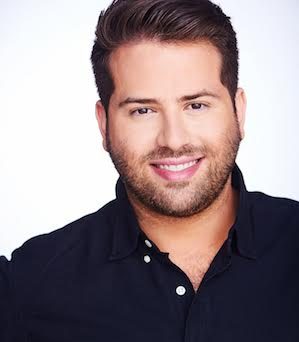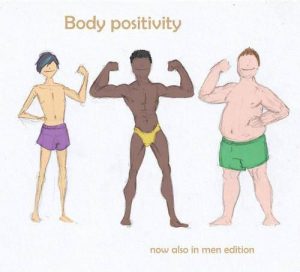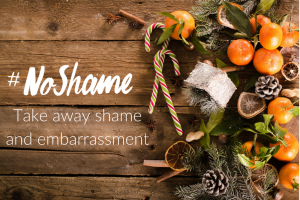Binge Eating Disorder and how it can affect men too.


Ryan Sheldon (featured on the right) shared his personal story What It’s Like Being a Guy with Binge Eating Disorder , where he speaks of his experience with Binge Eating Disorder. His experience highlights how his diagnosis of the eating disorder remained hidden for many years, with the main reason being his gender. The story sheds great light on an disorder which normally is not associated with males, and thus grabbed my attention. Ryan has since dedicated much of his time to bring awareness to the issue, and hopes to help others who struggle with similar issues. We hope to provide more insight on this issue and make more people comfortable with themselves, no matter what their eating disorder is.
1) What made you decide to post “What it’s like being a guy with Binge Eating Disorder”?
Knowing that this is a real disorder and being diagnosed took a huge weight off my shoulders. A lot of guys describe bringing up their eating disorders with their doctors and families, and are told, “That’s impossible. Only women get that.” Automatically they get shut down so the likelihood is they won’t talk about it anymore. We have to be able to ask for help. And friends, families, the medical community, have to be educated about eating disorders, and finally, we all need to be accepting—be empathetic and sympathetic. So I write about BED to shed light on a mental illness that is largely ignored. Hopefully when someone struggling with an eating disorder reads about mine, I can help him out and make him feel empowered. If you share your story, you have the potential to change someone’s life in a positive way, because a lot of times we just want to know we aren’t suffering alone. So now we’re just going to start breaking the mold and hopefully bring awareness to BED.
2) Can you explain Binge Eating Disorder in more detail?
I love this question! In my perspective BED is an obsessive compulsive
behavior surrounding food; it’s kind of an OCD with food – you know something that you can’t help but obsessively think of. It’s not necessarily just the act of eating the food, but it’s also the act of thinking about the food. So really, eating disorders are about fixation and control. The best way to illustrate BED is to describe a typical day in my own life. While this is embarrassing to share, I think it’s so important. It’s fair to say that I would think about food nearly 85 percent of my day which definitely put a strain on my job. I’d wake up seven in the morning, thinking about food. I’d take a shower, thinking about food. I’d eat breakfast, and continue thinking about food, go to work, and only function 70 percent of the day, because I would be thinking about food. I’d be looking up recipes, planning for a binge, or ordering online because it would be too embarrassing to pick up the food in person. I’d get in bed at about ten o’clock and then get out of bed at about eleven o’clock—just to open the refrigerator to stare at the food. I wouldn’t necessarily eat, but I would stand in front of the open fridge, then close it and go back to bed. I’m not joking–I would wake up at three in the morning, thinking about food. This was my life on repeat… over and over and over again. How crazy is that!?
3) Could you explain some of the predisposing factors that could lead to eating disorders, especially Binge Eating Disorder?
Eating disorders are a form of mental illness. And sure, things can trigger
the eating disorder. There are triggers for mental illnesses, and a lot of people with eating disorders suffered some sort of abuse when they were young. These traumas can be at the root of an eating disorder.
I also believe that this disorder was something I was born with, but the obvious trigger was my grandfather’s death—that was the moment my eating got out of control. You can find genetic tendencies for OCD, but a lot of us don’t want to discuss our struggles or be associated with an eating disorder. Many people cloak their disorders their entire life.
4) Why are eating disorders seen only as an issue that women go through? Do you believe this is due to statistics (that show women are more prevalent to these disorders) or the social norms society has us believe of women and men?
It’s amazing that I’d been going to therapy for years but my eating habits
never came up. I’d seen the same therapist for eight years and my weight fluctuated big time. I saw the second therapist for six years and they’d seen me through my high weights and my low weights and never talked about it. I’d come in after Weight Watchers and say, “I gained five pounds this week.” Never a discussion. That was it. Then the next week I’d go to Weight Watchers and come back and say, “I gained two pounds.” Never a conversation. It makes you wonder how many men’s eating disorders are ignored, even by doctors and therapists, and how many men feel they just can’t talk about it, and of course this impacts statistics. There are guys who suffer with a lot of other things they’re too embarrassed
and ashamed to talk about because we’ve stigmatized these things along gender lines. Think about it–men aren’t supposed to have emotions, and emotions are associated with eating disorders, so the misconception is that men don’t suffer from eating disorders. That’s so wrong. The truth is insecurities have nothing to do with gender.
So if we can face that we’re sexist when it comes to the way we view eating
disorders, we’ll make some progress. It’s so important to remember that eating disorders are emotional, psychological and can affect anyone. In fact, just about half of those who suffer from BED are men. I think most of the men out there suffering from BED don’t even realize it’s a disease – they just consider themselves big guys who eat too much.
Women are much more educated on eating disorder awareness, so they are more open to the idea that they or a friend may suffer with one, and they keep a watchful eye for the signs. They are more vocal because society allows them to be.
5) Would you say modern day society has increased the prevalence of eating disorders? Factors like the media, fast food, the popularity of exercising and so forth?
Yes… in terms of our food, there are horrible additives and ingredients that
are addicting and unhealthy and can definitely trigger a disorder. Unfortunately, when we eat too much junk, whether it’s fried and fatty foods or processed foods that are too high in sugar, we often end up craving it all the more. There’s no denying that the chemicals in our foods affect us. But it’s hard to be raised in this country and avoid all the unhealthy food the media portrays in such an enticing way.
The media also plays a big part in how we view ourselves. Men are dealing
with the same stuff as women. From a guy’s perspective, when we see an actor, a model, and they have a six pack, they look a certain way, we can forget… that’s not the average man, that’s not reality. Dove’s advertising campaign did a lot for women, representing women of all sizes with all skin types, but where’s the same type of campaign for guys?
And as far as exercise goes, the pressure’s immense! I stopped going to the
gym because I felt uncomfortable; all the guys were fit and in shape, and I was trying to get in shape and I couldn’t because I was so concerned with how these people were viewing me. We all know that the girl wants the guy with abs, so you believe, I have to have abs, but the reality is… I don’t think I’m ever going to have abs, and I have to accept that and love the fact that I’m never going to be cut like that. What’s really ironic–the guys with the abs have got their own insecurities.
6) In the article, you refers to a ‘love affair’ with food. Why is it that some, if not most of us, have such a special connection with food?
Gatherings, celebrations, holidays–all revolve around food and alcohol.
Particularly in America, we celebrate with family recipes, sometimes passed down. Every occasion, whether it’s mourning somebody, or celebrating life, there seems to be food involved. And I think that a lot of us use food as a coping mechanism. The media shows this too. Recently a McDonald’s commercial that aired in Europe, showed a mom taking her son for a fish filet after his father died. People went crazy, because they said, “Wow the sandwich is supposed to make up for the kid’s dad!” Commercials and ads play into this fallacy. But when it comes right down to it…food is something that is always there and it never talks back. Eating provides comfort when you’re going through a hard time. Food is always there and it won’t begrudge you.
7) With regards to the previous question, when would you say this connection with food came about? Is it something we have had since day one of humanity or has it developed over the years as humans have?
I only have thirty years of experience, but the broader connection is obviously there. Food is a connection like music and story telling; it’s a powerful social component. I think it’s fair to say that this connection we have with food has been a constant… after all the cave men did need to eat and we’ve always been creatures with emotions! If you look back in time, food has been a universal language almost like love.
8) Can you suggest some of the best ways to help treat Binge Eating Disorder? In the article, you speaks of seeing a therapist, reducing the number of planned meals and keeping busy, what else?
First of all–I think creating structure is essential. Also, therapy, keeping
busy and definitely becoming aware. Being aware gives you power and control. If I’m binging and I’m aware of it, that means after I’m done binging I’m going to be very mindful and be like, “Okay, Ryan, I just binged but it doesn’t have to destroy me,” because a lot of times after you binge you become depressed. Being unaware is very dangerous. If you binge and you’re not aware of it, you’re going to continue the spiral. So being aware and being mindful are key. I don’t want anyone to think this is some easy thing to do. It took me a really long time to get to the place where I could literally have a conversation with myself and be like, “Ryan, okay, I’m binging right now… don’t freak out about it– it’s going to happen, and then I’m going to get over it. I’m not going to let this upset and obsess me for the next week and a half.”

9) Lastly, what advice can you give the readers who are currently struggling with BED or other eating disorders?
Advice—there are several different things. Be very open–whether it’s with
your doctor or your family. Too many suffer in silence because they fear being judged. I can tell you that my life changed from the moment I found out I had an eating disorder because I was very open with it even when I didn’t understand what was going on with me. And once I was open, that gave me power, it removed all the shame just understanding that I had an eating disorder. I wasn’t embarrassed anymore. So definitely being open, and not being afraid to let yourself be vulnerable. Also, there is something else that is essential and this is something that took me awhile to be able to do–giving my close family and friends permission to help. A lot of people don’t know how to help because they aren’t doctors, and even many doctors don’t necessarily know what to say to help, but giving permission or giving the green light to give constructive guidance is big. For each person this type of permission will be different. When I’m in a restaurant with a friend, it helps if they make a caring suggestion, such as, “Why don’t you order one thing and then if you’re still hungry then order something more?” But this is not about giving my friends complete free reign or judging me when I crave a cheeseburger. Each person needs to figure out how to clue in his friends and family for himself.
Ryan Sheldon is an advocate for all men who struggle with eating disorders. He hopes to help those who struggle with eating disorders, by using humor and education to humanize the issue.
You can hear more from Ryan at:
Website: http://confessionsofabingeeater.com/
Twitter: https://twitter.com/BingeConfession
Facebook: https://www.facebook.com/bingeeaterconfessions
Instagram: https://www.instagram.com/bingeeaterconfessions/




Responses